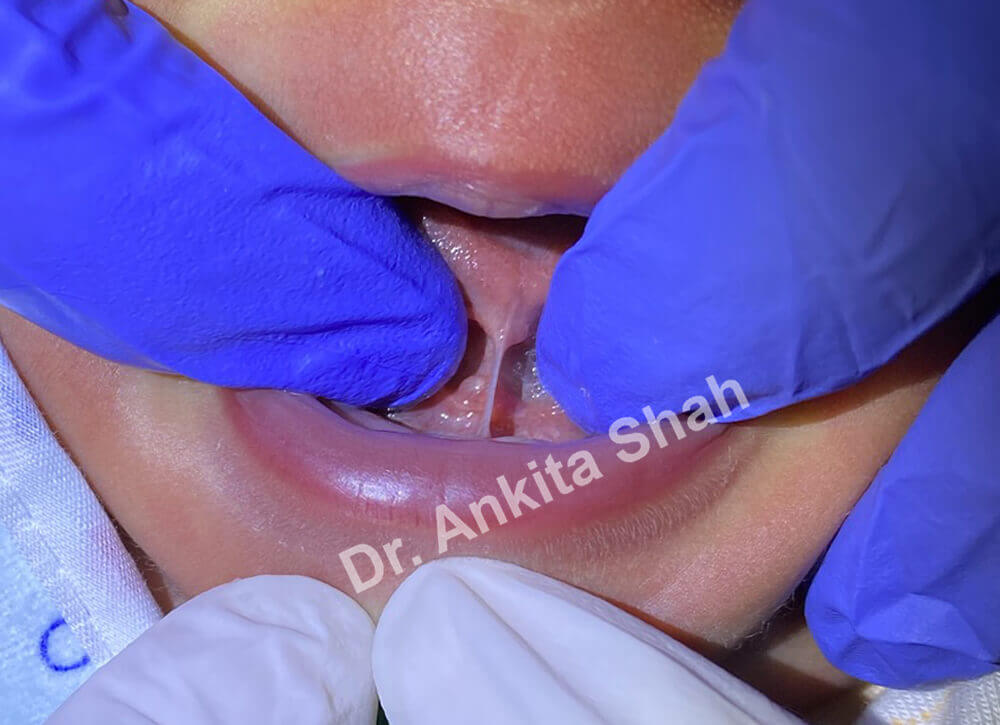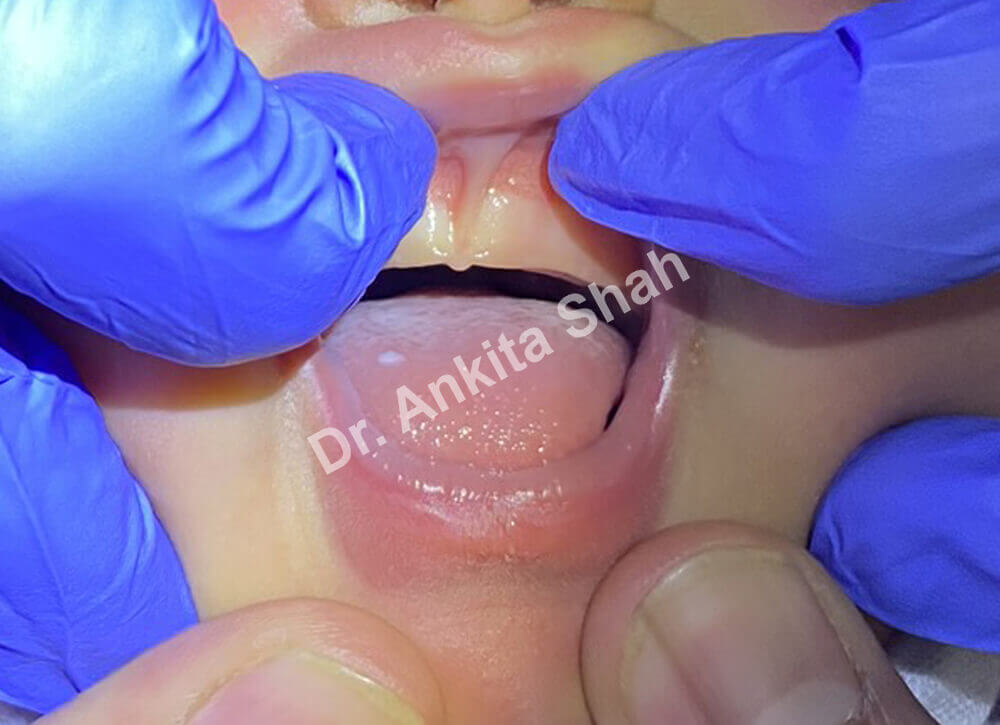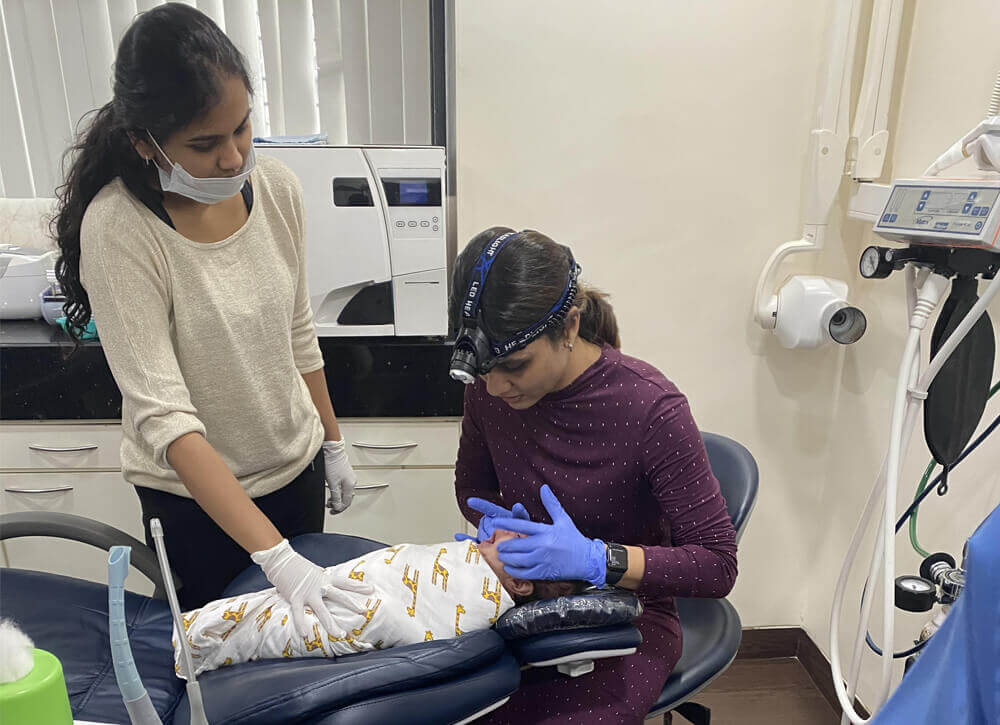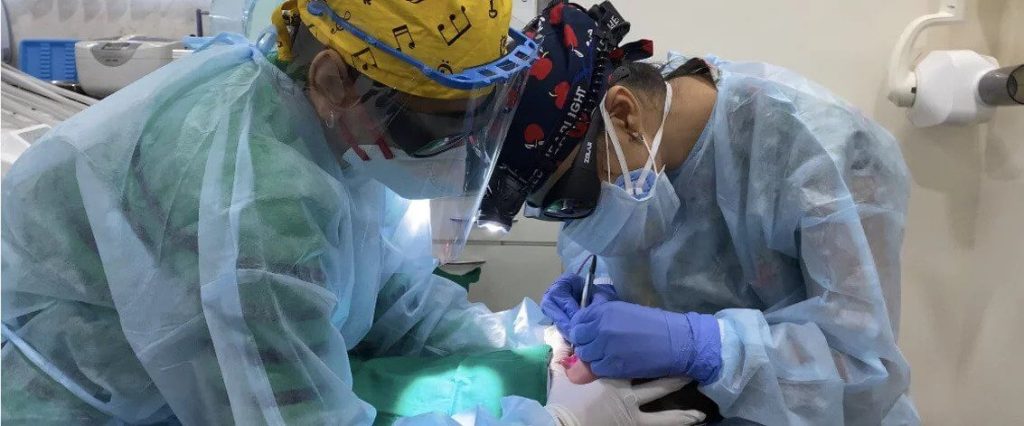

Is your child struggling with feeding, speech, or dental issues? Lip and tongue ties could be the underlying problem. Don’t let your child suffer in silence.Take action today and help your child thrive!


Some babies with tongue ties and lip ties are able to attach to the breast and suck well. However, many of these infants have breastfeeding problems. Below is a list of the tongue and lip tie symptoms and signs that are common amongst infants and children. However, it is important to note that these signs can be linked to other breastfeeding problems and are not solely related to ties.

Frenectomy procedure removes the tissue or tight frenulum under the tongue or upper lip. Dr. Ankita uses a state of the art laser for a safe and quick procedure that allows for greater tongue and lip mobility.

In some instances, frenectomies can aid in prevention of other health problems like dental decay or spacing, speech difficulties and digestive issues. Dr. Ankita is also laser certified by Global Laser Oral Health, (GLOH), LLC to perform laser frenectomies. While the procedure can be done with a laser or scissors, advantages of revising ties with a laser include:
While not all tongue ties cause speech problems, about 70% of tongue ties do cause speech problems. If a tongue tie is left untreated, it can cause speech problems as the baby grows older. It can also affect swallowing, posture, jaw growth and airway development. However, it is difficult to say which type of tongue tie may cause a speech problem.
Restricted mouth/tongue movement (due to taut lingual frenulum or labial frenulum) can affect breastfeeding, nasal breathing, eating habits, speech, posture, digestion, development of the jaws and sleeping patterns. To avoid this, tongue and lip ties need to be released. Check out this blog to learn more.
No. The laser frenectomy treatment for tongue tie and lip tie is safe, quick, simple and painless. Prior to the treatment, a topical anaesthetic gel is applied to the frenulum to ensure it causes no pain. Also, the anaesthetic lasts for approx. 30 minutes.
A pen-sized laser is used to remove tongue/lip tie, and the entire procedure takes only a few minutes.
Copyright ©2025 TMJ, Tongue Tie and Sleep Institute. All Rights Reserved.
WhatsApp us
Let Us Know How Can We Help You!
At our institute, we take pride in providing complete care for issues related to tongue tie and TMJ. To enhance your quality of life, we treat a range of ailments with state-of-the-art technology and expert care. If you’re searching for an effective tongue-tie operation option or a TMJ specialist in India, you have arrived at the right place.
A tongue tie operation or tongue tie surgery is a life-changing procedure that not only restores tongue mobility but also has a full body effect. While most people associate tongue tie with breastfeeding difficulties in infants, it can also affect speech, breathing, posture, dental health, and sleep patterns in older children and adults. By undergoing this minimally invasive fascia release procedure, patients often experience immediate improvements in functionality and overall well-being.
For individuals considering tongue tie surgery, the benefits are far-reaching:
The Temporomandibular Joint (TMJ) that is your Jaw Joint has a significant impact on one’s quality of life, as they leave the person feeling exhausted and irritable. It not only affects essential functions like chewing, speaking, yawning but also affects one’s posture, breathing and sleep. As a leading TMJ specialist in Mumbai, we offer comprehensive diagnostics and personalized treatment plans to address your unique needs.
An integral part of our treatment protocols is myofunctional therapy. Exercises used in this therapy help to strengthen and coordinate the muscles of the tongue and face. Whether you’re undergoing a tongue tie operation or being treated for TMJ issues, myofunctional therapy plays a pivotal role in ensuring lasting outcomes.
Expertise and complete treatment are essential for treating TMJ issues or tongue tie. Whether you’re searching for the best tongue tie surgery options or a trusted TMJ specialist in Mumbai, we ensure personalized care and transformative results. Don’t let these conditions stop you—reach out to us today to book your consultation and start your journey toward better health and wellness.